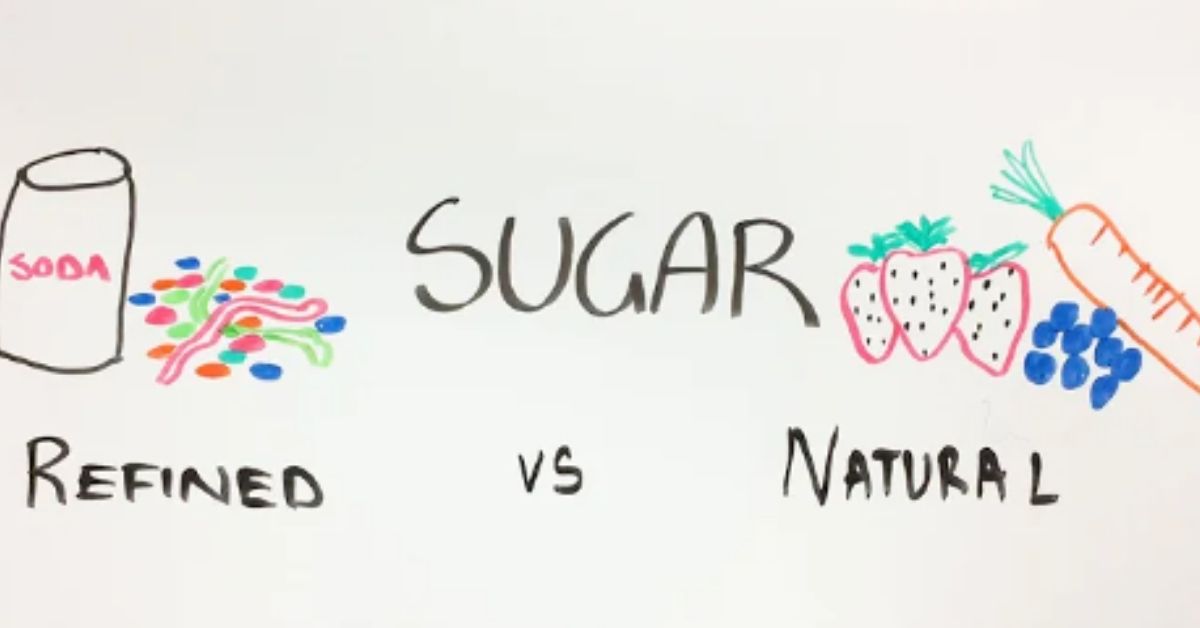In your daily quest for a healthier lifestyle, you’ve likely pondered the difference between natural and refined sugars. It’s no secret that sugar plays a big role in modern diets, but the impact on your health can vary dramatically depending on the type of sugar you consume. Understanding these differences is crucial as you navigate the sweet world of dietary choices.
Natural sugars are found inherently in fruits, vegetables, and other whole foods. They come with vitamins, fiber, and essential nutrients that benefit your body. On the other hand, refined sugars, often seen in processed foods, are stripped of these beneficial properties during production, which may pose health risks. Knowing which sugars to choose can help you maintain not only a balanced diet but also a vibrant lifestyle.
So, let’s dive into the sweet details of natural versus refined sugars and discover how your choices can influence your health and well-being.
Understanding Natural vs Refined Sugar
What Is Natural Sugar?
Natural sugar, as the name implies, occurs naturally in food sources such as fruits, vegetables, and dairy. Not only does it sweeten your meals, but it also provides essential nutrients that your body needs. For instance, sugar found in an apple or a serving of blueberries comes packaged with vitamins, minerals, and fiber that aid in digestion and overall health. These sugars are integral to the whole food and aren’t extracted or processed separately.
What Is Refined Sugar?
Refined sugar, on the other hand, is extracted from sugarcane or sugar beets and then processed to enhance its purity. This type of sugar is commonly seen in the form of granules or crystals and is found in a vast array of processed foods, from cakes and cookies to sodas and cereals. Unlike natural sugar, refined sugar lacks vitamins and fiber, offering no real nutritional benefits. It’s often referred to as “empty calories” due to its lack of health positives and associated health risks when consumed in excess.
Health Impacts of Sugar
Effects of Natural Sugar on Health
Consuming natural sugars, which you find in fruits, vegetables, and dairy products, offers numerous benefits—if you consume them in moderation. Unlike refined sugars, natural sources include essential nutrients. Fruits and vegetables are rich in vitamins, minerals, and fiber, enhancing your digestive health and lowering your risk of chronic diseases. For example, the fiber in apples and berries slows the digestion of sugars, stabilizes your blood sugar levels, and provides a sustained energy release. Similarly, the calcium in dairy helps strengthen bones and teeth, besides providing sugar in a more wholesome form than refined products. Importantly, the presence of these nutrients in foods containing natural sugars helps in preventing spikes in blood glucose levels, thus safeguarding against diabetes and obesity when part of a balanced diet.
Effects of Refined Sugar on Health
On the other hand, refined sugars, commonly found in processed foods like sodas, desserts, and candies, pose significant health risks. These sugars undergo extensive processing to extract from their original source—sugarcane or sugar beets—removing almost all natural nutrients and fiber. The lack of essential nutrients in refined sugars results in them being metabolized quickly, leading to rapid spikes in your blood sugar and insulin levels. Frequent consumption of high amounts of refined sugar increases your risk of developing conditions such as type 2 diabetes, obesity, and cardiovascular disease. For instance, consuming a high-sugar diet contributes to increased levels of triglycerides in the blood, which can lead to atherosclerosis, a condition characterized by clogged arteries. Reducing refined sugar intake can significantly decrease the risk of these health issues, reinforcing the importance of choosing more natural sugar sources in your diet.
The Sugar Debate in Diets
Role of Natural Sugar in Diets
Natural sugars, found in fruits, vegetables, and dairy products, form an essential part of a balanced diet. When you consume these foods, you don’t just taste sweetness, you also get a package of nutrients—vitamins, minerals, and fibers—that all work together to boost your health. The fiber in fruits, for example, apples and bananas, aids in slowing down the absorption of sugar. This results in more stable blood sugar levels and provides a sustained energy release. Consuming natural sugars in their whole food form also helps prevent overeating, as the fiber increases satiety, helping you feel full for a longer period.
Role of Refined Sugar in Diets
Refined sugars are typically found in processed foods and beverages such as sodas, desserts, and flavored yogurts. Unlike natural sugars, refined sugars provide rapid energy bursts that can lead to spikes in blood sugar and insulin levels, a factor that may increase your risk of developing type 2 diabetes and cardiovascular diseases. Regular consumption of refined sugars can also lead to weight gain and obesity, as these sugars are often packed in calorie-dense foods lacking nutritional benefits. It’s significant for you to understand how refined sugars can negatively impact health, potentially leading to a cycle of cravings and energy dips that affect your daily activities and long-term well-being.
Environmental and Economic Considerations
Environmental Impact of Sugar Production
Sugar production, both from natural sources like sugarcane and sugar beets, and from refined processes, has significant environmental effects. Agriculture practices for these crops can lead to deforestation, biodiversity loss, and soil degradation. For example, sugarcane cultivation often requires clearing large tracts of land, which can contribute to loss of natural habitats for wildlife.
Water usage presents another critical concern, as sugar crops are typically water-intensive. This can strain local water resources, especially in regions where water scarcity is already a problem. The use of pesticides and fertilizers in sugar farming also contributes to water pollution, affecting both aquatic life and human health if local communities rely on these water sources for drinking.
Processing natural and refined sugars further impacts the environment through carbon emissions. Factories that convert raw sugar into its refined form emit large quantities of greenhouse gases. Additionally, the transport of sugar between different locations—often across international borders—increases carbon footprints significantly.
Economic Aspects of the Sugar Industry
The sugar industry plays a pivotal role in the economies of several countries, providing employment and contributing to GDP. Brazil, India, and Thailand, among others, rely heavily on their sugar industry as a major economic driver. Employment spans from agriculture—involved in the cultivation of sugar crops—to manufacturing roles in processing plants.
However, the sugar market is also subject to intense volatility due to changes in international trade policies and fluctuating global market demands. This can lead to economic instability for producers, especially small-scale farmers who might depend solely on sugar for their livelihood. Subsidies and trade protections in some countries aim to stabilize the sugar industry but can also lead to market distortions.
Moreover, shifts in public health policies and consumer preferences toward healthier diets have begun to impact the sugar industry economically. Increasing awareness of the health effects of sugar consumption has reduced demand in some markets, prompting the industry to look for innovative ways to sustain its economic viability, such as diversifying into bioenergy production.
Understanding these environmental and economic contexts helps you grasp the broader impacts of sugar consumption beyond individual health and well-being.
Conclusion
Choosing between natural and refined sugars isn’t just a matter of personal health—it’s also about considering the environmental and economic impacts. By opting for natural sugars, you’re not only benefiting from their nutritional value but also contributing to a more sustainable world. Remember, moderation is key in maintaining a balanced diet and safeguarding your well-being. Make informed choices that align with your health goals and the broader needs of the planet.
Related Posts:
- Natural vs Refined Sugar: Health, Environmental, and Economic Impacts
- Pasteurized vs Unpasteurized Juice: A Comprehensive Guide to Safety and Nutrition
- Managing IBS Symptoms: Effective Carbohydrate Choices and Tips
- Ketogenic Juicing Guide: Low-Carb Recipes & Essential Tips
- Top Homemade Juice Recipes to Lower Cholesterol & Boost Heart Health
- Stomale-Friendly Meals: Top Recipes & Tips for Stomach Ulcer Relief
- Ultimate Brain Detox Juice Recipe for Enhanced Cognitive Health
- Lung Juice: Boost Your Respiratory Health with This Ginger-Lemon-Honey Beverage
- Quick Turmeric Juice Recipe for Inflammation Relief & Health
- Top Juices for Inflammation Relief: Tips and Recipes


